Cholesterol is a disease that day by day is gaining ground. In Spain we boast of Mediterranean diet but we stay in the recipe books. That is why this problem, already established and one of the most worrying in the UNITED States, begins to be in European countries a real headache for the health system.
Against cholesterol, the instructions are clear: sport and good nutrition. However, we can also resort, without forgetting that it would act as a complement, medicinal plant remedies that can give us the nudge we need to put cholesterol at bay in our body.
Table of Contents
Not all cholesterol is bad in our body…
It must be clear that cholesterol is necessary, in small amounts, for the functioning of our organisms. The problem comes when we exceed the limits and contribute to the formation of plaques, clogging arteries and hindering the passage of blood.
However, the word cholesterol is stigmatized, because there are different types and not all are bad.
LDL-C: the bad cholesterol
This type of cholesterol is made up of low-density lipoproteins. It forms most of the cholesterol in our body. It forms plaques of atheromas in arteries and causes cardiovascular disease.
HDL-C: The Good Cholesterol
It consists of high-density lipoproteins and is considered the “good cholesterol”.
It helps to displace the LDL-C (bad cholesterol) that forms the atheromatous plaques and transports it to the liver, which is physiologically prepared to break it down and use it for other pathways.
Triglycerides
If we make a blood tests, we will check in the analytics that also gives us information regarding the amount of triglycerides we have.
It is a type of fat or lipid substances that our liver manufactures, and is intimately linked to the accumulation of fat or overweight.
The triglycerides they travel through the bloodstream as part of lipoproteins (VLDL and Chylomicrons). An excess of triglyceride production by the liver causes diseases such as hypertriglyceridemia, with an increase of more than 30% of suffering from a cardiovascular disease.
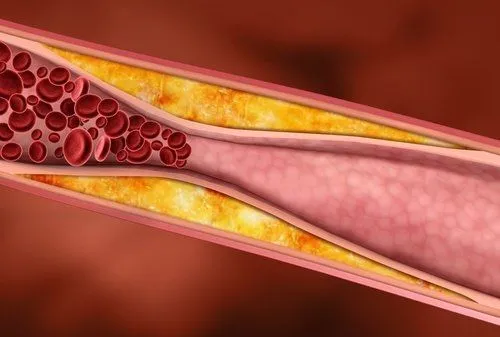
Therefore, we are going to mention the main medicinal plants, with refuted research studies, which help reduce and control blood cholesterol levels.
1.- Moringa (M. Oleifera – Plantain minor)
The moringa, which we talked about in previous articles, has numerous effects against diabetes, inflammation, wounds, cholesterol, etc.
The seeds of this medicinal plant are rich in omega 3, an oil involved in the reduction of high blood cholesterol.
The content in antioxidants The dust of its leaves also encourage the elimination of cholesterol plaques in the arteries, complemented with a healthy diet (predominance of fruits, vegetables and vegetables) and sport.
Inflorescence of Plantago lanceolata
2.- Basil
This medicinal and aromatic plant also has effects against cholesterol. It has a high content of saponins, which reduce the negative effect of fat, modifying its chemical properties (emulsification of fat).
In addition, basil extracts act on the lipid production metabolism of the liver, specifically LDL or low-density lipoproteins.
How to prepare an infusion of basil to reduce high cholesterol
Preparation (per liter of infusion)
- 20 grams of fresh basil leaves.
- Bring to a boil for 10 minutes.
- Let stand for 15 more minutes, reducing the temperature for consumption
Infusion intake
With high cholesterol diagnosed, take 3 cups a day, breakfast, after lunch and after dinner.
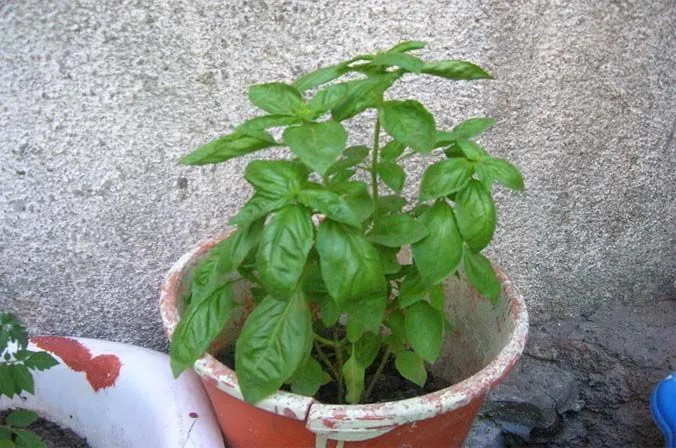
3.- Turmeric (Turmeric longa)
There are numerous scientific publications that support the use of turmeric against the development of cholesterol. In the prestigious publication Atherosclerosis, 2004, defend turmeric extracts with antioxidant action to reduce lipid levels in the body.
American Heart Association’s Basic Cardiovascular, in 2009, conducted an animal trial where fat levels in laboratory rodents were reduced by 25%.
Subsequently, it was studied whether turmeric reduced all cholesterol levels (even good) or maintained its concentration and only reduced triglycerides and LDL.
The comparison was made in 2011, at Kyungpook University (South Korea), also in laboratory rats, where it was found that after a prolonged intake of turmeric, LDL and triglyceride levels were reduced, but “good cholesterol” or HDL (high-density lipoproteins) increased.
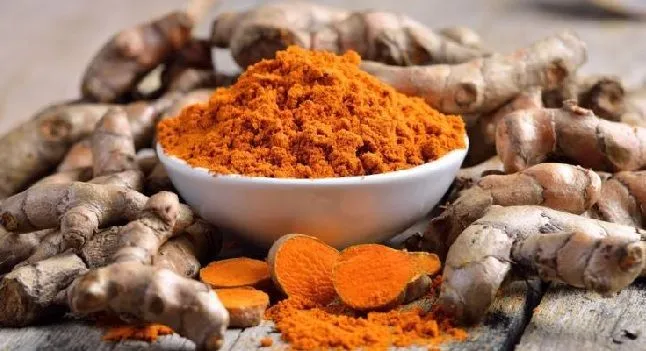
4.- Cinnamon (Cinnamomum verum)
Using another product better known and practically present in all European and Asian cuisines, we can also offer a defense barrier against the accumulation of bad cholesterol in our body.
There are university trials and studies that refute the potential effect of cinnamon against production and accumulation of triglycerides.
One of them is the one made by Annals of Family Medicine, at the University of Connecticut. Cinnamon was shown to be effective in reducing total cholesterol, LDL and triglyceride levels.
Treatment based on cinnamon powder extract Introduced in desserts and meals lasted 40 days and was consumed from 1 to 6 grams of cinnamon a day, reducing on average 7% the levels of lipide in the blood.
Half a tablespoon of cinnamon a day reduces blood levels of hypercholesterolemia and triglycerides, according to the Research Center in Beltsville, Maryland.
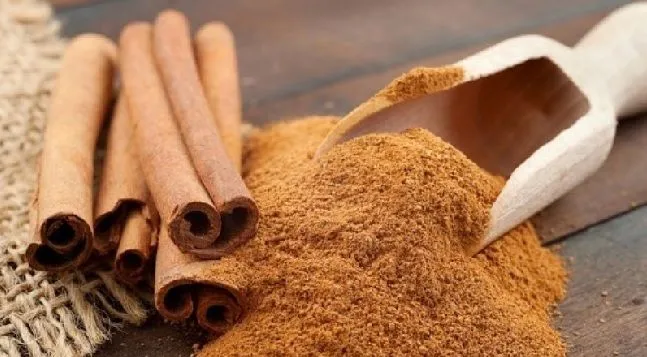
How to prepare a cinnamon infusion
Although there are many recipes where cinnamon is given a certain prominence, you can also take it as an infusion (very rich by the way) to benefit from all its pontential:
- 1/2 liters of water and 2 or 3 cinnamon sticks.
- Boil for 5 minutes.
- Let stand for 15 minutes
- You can add sugar, stevia, saccharin or honey to sweeten, according to tastes.
5.- Chamomile
Although to this day it has not been demonstrated the Anti-cholesterol power of chamomile, there is evidence that refutes its potential and we are eager for it to be tested at the level of scientific study.
Chamomile contains an essential element for the organism known as hill. This compound is responsible, among other things, for being part of the structure of cells and cell membranes. It is also important because it helps transform fat into energy.
The choline of chamomile would work as an emulsifying effect of fat, making cholesterol particles small and facilitating their elimination by the body.
Blood clots, thrombosis and other cardiovascular diseases are determined by the chemical characteristics of fat. If it is not emulsionda, becomes sticky and causes circulatory blockages.
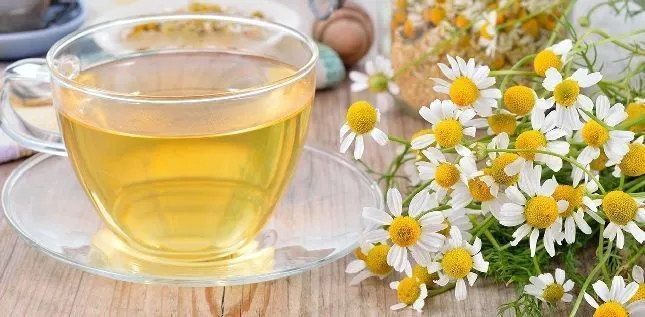
Garlic does not lower cholesterol
Despite what has been said for a long time, garlic is not a product used to fight cholesterol. Although it has many other properties (antiseptic, fungicide, antioxidant, etc.), reducing the levels of lipid substances in our body is not one of them.
It has been demonstrated from a work published in Archives of Internal Medicine. It is not useful either raw or through supplements to reduce LDL.
However, the research does not curb the potential of garlic to prevent other heart diseases that do not originate from high cholesterol levels.
“It is widely recognized that atherosclerosis is a complex phenomenon in which inflammation, hypertension, platelet aggregation, dyslipidemia, diabetes and a host of other factors such as previous infections, tabaquismo or genetics could influence»
It is not a medicinal plant, but moderate wine also helps…
In the University of Seville they have taken to pulse to enhance the current recognition of the wine, which in itself is already high. It has been shown in a trial that a moderate wine consumption (red or Sherry and Manzanilla wines) reduces in the long term between 20% and 30% the levels of LDL cholesterol, obtaining a progressive increase in HDL.
What is meant by moderate consumption? 1 milliliter per kilogram of consumer weight.
